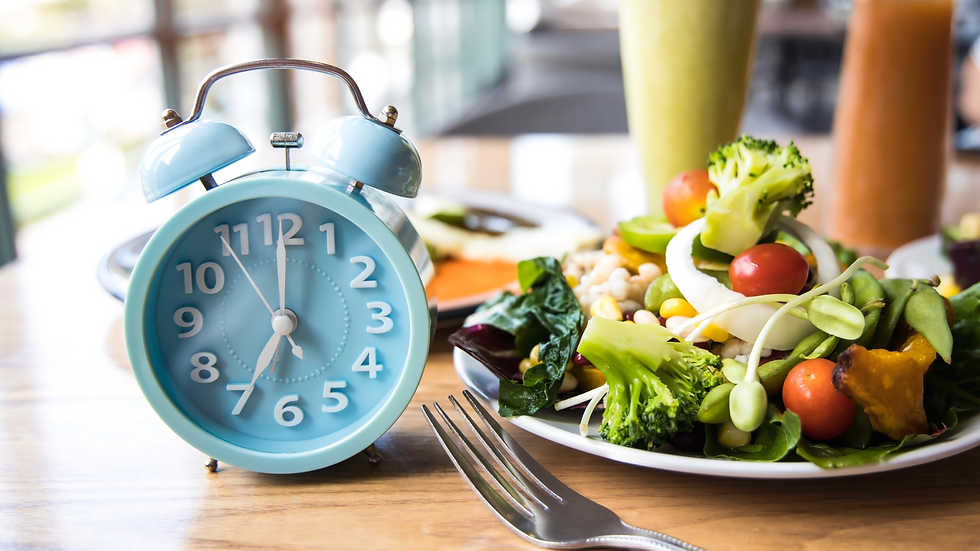THINGS TO KNOW ABOUT NO SUGAR DIET
- nieljenkinsaffilia
- Feb 3, 2024
- 2 min read

Adopting a no-sugar diet involves more than just eliminating the obvious sources of added sugars. Here are important things to know about a no-sugar diet to help you make informed choices and navigate this dietary approach effectively:
1. Identify Hidden Sugars:
Read Labels: Added sugars can hide under various names, including sucrose, high fructose corn syrup, and other sweeteners. Check ingredient lists to identify hidden sugars in processed foods.
2. Whole Foods Emphasis:
Focus on Whole Foods: Prioritize whole, unprocessed foods such as fruits, vegetables, lean proteins, nuts, and seeds. These foods contain natural sugars along with essential nutrients.
3. Sugar Alternatives:
Be Mindful of Sugar Substitutes: While some people use sugar alternatives, be cautious with artificial sweeteners. It's essential to understand how they may impact your taste preferences and overall health.
4. Natural Sugars vs. Added Sugars:
Differentiate Natural and Added Sugars: Natural sugars found in fruits and vegetables come with fiber, vitamins, and minerals, making them healthier choices. Focus on reducing added sugars from processed and sugary foods.
5. Meal Preparation:
Cook at Home: Preparing meals at home allows you to have better control over ingredients and sugar content. Choose fresh, whole ingredients and experiment with herbs and spices for flavor.
6. Gradual Reduction:
Transition Gradually: If eliminating all added sugars feels challenging, consider reducing sugar intake gradually. This approach can help your taste buds adjust over time.
7. Watch for Sugar Content in "Healthy" Foods:
Beware of "Health" Foods: Some products labeled as "healthy" or "low-fat" may contain high amounts of added sugars. Always check nutrition labels for the sugar content.
8. Sugar in Condiments and Sauces:
Check Condiments: Sauces, dressings, and condiments can be significant sources of added sugars. Opt for homemade versions or choose options with no added sugars.
9. Potential Side Effects:
Be Prepared for Withdrawal: Initially, you might experience sugar cravings and mood swings as your body adjusts. Staying hydrated and focusing on whole foods can help alleviate these symptoms.
10. Carbohydrates and Sugar:
Understand Carbohydrates: Carbohydrates break down into sugars in the body. While natural sources of carbohydrates are essential, minimizing refined carbohydrates is part of a no-sugar diet.
11. Hydration:
Choose Unsweetened Beverages: Sugary beverages contribute significantly to added sugar intake. Opt for water, herbal teas, or black coffee without added sweeteners.
12. Social Situations:
Navigate Social Events: Informing others about your dietary choices can help manage social situations. Be prepared to make choices that align with your no-sugar goals.
13. Individual Tolerance:
Understand Your Body: Individual responses to a no-sugar diet can vary. Some may thrive on this approach, while others may need to find a balance that suits their lifestyle and health needs.
14. Consult with a Professional:
Seek Professional Guidance: If you have specific health concerns or goals, consider consulting with a registered dietitian or healthcare professional for personalized advice.
15. Lifestyle Commitment:
Lifestyle, Not a Temporary Fix: Adopting a no-sugar diet is a long-term lifestyle commitment. Focus on building sustainable habits rather than seeking quick fixes.
Remember that individual responses to dietary changes can vary, and what works for one person may not work for another. It's essential to tailor your approach to your unique needs, preferences, and health goals. Before making significant changes to your diet, especially if you have existing health conditions, consulting with a healthcare professional or a registered dietitian is advisable.



Comments